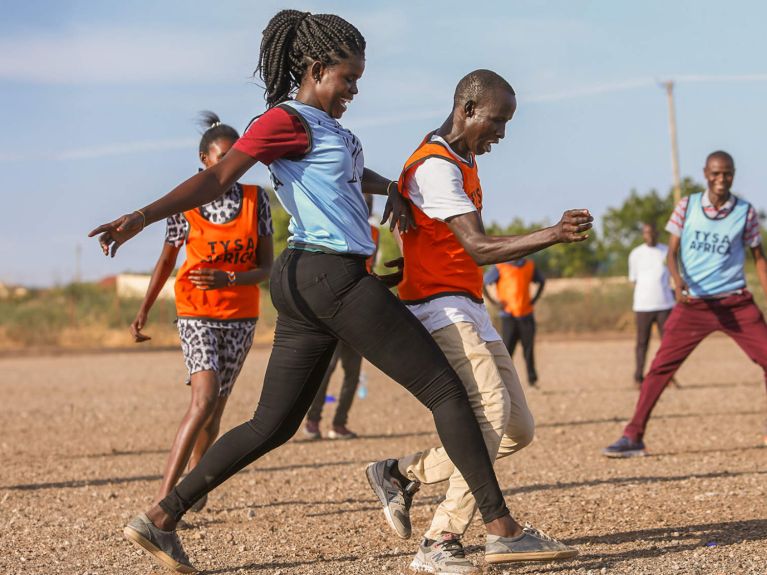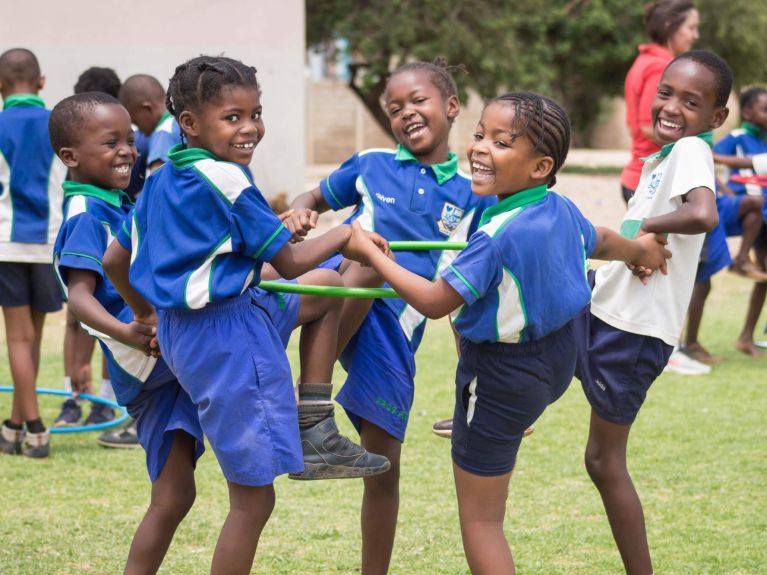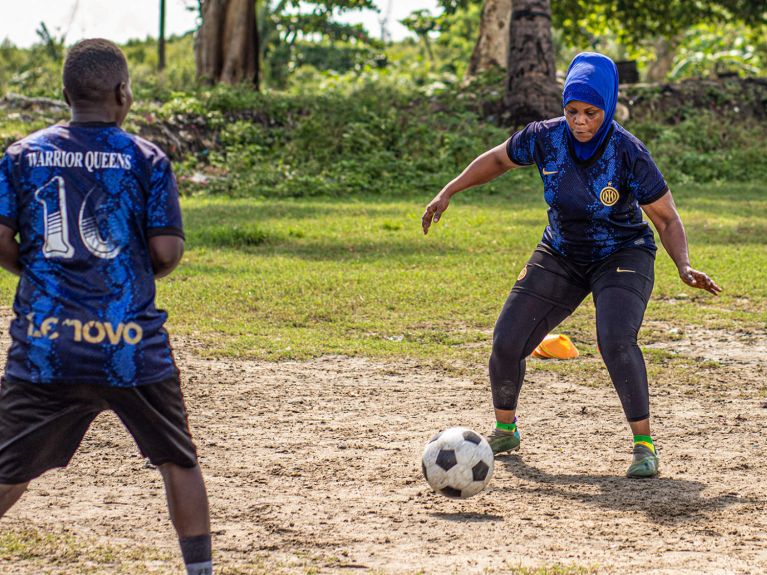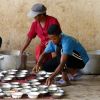Gender equality through sports
The S4DA programme mobilises the power of sports to engender positive social development by boosting equality.

“Sport connects people everywhere. It’s a language we all speak,” says Mariam Ibrahim. The project S4DA (Sport for Development in Africa) has been making use of this language since 2014 to promote gender equality in the sports-loving continent of Africa. Formerly a member of the Egyptian national football squad, Ibrahim works on the S4DA team at GIZ GmbH, the German international cooperation agency. Run by GIZ on behalf of the German Federal Ministry for Economic Cooperation and Development (BMZ), the project pursues a partnership-based approach: “We get everyone involved together and make a plan,” says Ibrahim.
S4DA involves the following participants: the BMZ and GIZ from Germany, the African Union Sports Council representing Africa as a whole, and at national level the relevant ministries in many cases. The programme’s main partner countries are Cameroon, Kenya, Senegal and the Zanzibar region in Tanzania, though Namibia is also taking part.

“We mobilise the power of sport to teach children and young people life skills,” says Ibrahim: S4DA promotes gender equality through sports and physical exercise. The programme boosts the role of women and girls through sports activities while at the same time promoting “positive masculinity” among boys and men. Sport is also a way of teaching fairness and peaceful conflict resolution, which in turn contributes to greater gender equality – if people have played sports together, they treat each other with more respect off the pitch, too. “Being part of a team is like belonging to a community,” says Ibrahim.

How does the project team go about their work? “We train trainers who then go out and train children and young people,” says Ibrahim. She firmly believes that sport makes a significant contribution to sustainable development.


